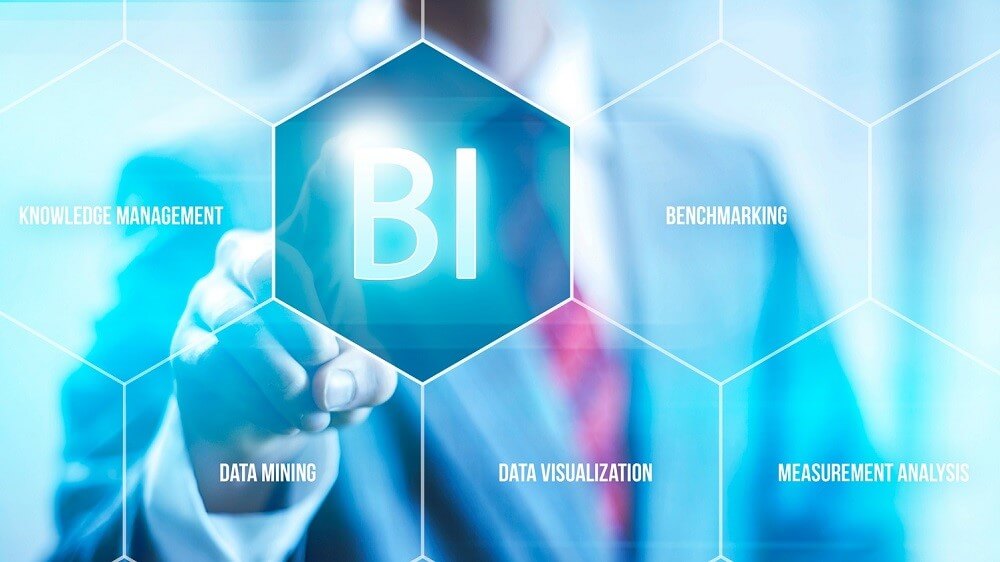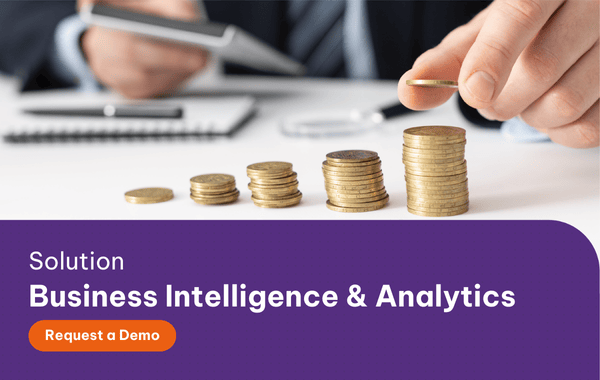Business Intelligence (BI) implies all modern technologies that can provide useful information for business purposes. The word "Intelligence" in the phrase "Business Intelligence" means the ability to access insights easily.
The definition of Business Intelligence
BI integrates platforms and software solutions that allow users to view information related to their work in an up-to-date and timely manner. Moreover, advanced BI solutions can take care of predictions, trend analysis, and data mining depending on the needs of each specific situation.
In addition, data integration is also an important part of BI because many of the software systems (such as ERP, invoicing, payroll, inventory tracking, SCADA systems, etc.) can be integrated with BI solutions.
Read more: 9 Steps to a Successful ERP Implementation
Data from integrated systems will be collected by BI in a storage centre, often called a data warehouse, and will play a key role in all future business plans. Another smart feature of BI is that it pre-calculates important data, sometimes drawn from different data sources in the enterprise. From there, executives can rely on this timely, accurate amount of data to make important decisions for their organisations.

When should an organisation need BI?
Obviously, BI offers a highly competitive advantage. However, these solutions need investment budgets, from the cost of purchasing, development and deployment of system software to training for users. Therefore, the size of a company can influence the application of BI.
So, when should you consider BI solutions? Because BI primarily addresses issues with the visibility and validity of data, it enables administrators to work faster and more efficiently. Therefore, when the total cost of working with erroneous, not-updated data is too expensive, and the results are not positive, it is time to consider BI.
Read more: Data Analytics for Manufacturing: the Tesla’s Case Study
The benefit of Business Intelligence
In terms of data
As businesses grow to a certain level, autonomy begins to emerge. That means the CEO no longer holds all of the decision-making powers and they are assigned to the lower levels of management. However, the CEO still has to make the decisions that have a big impact.
At this point, the data should be sent from all departments. Without a unified management system, the correct, standard data presentation and delivery will become a significant problem. In addition, there may be a personal misrepresentation, resulting in loss of valuable data and severe damage to the organisation.
Read more: Rise of the CDO and the Growing Importance of Data
BI solutions provide a framework that automatically transfers information directly from the original department to the stakeholders, from low to high level. Hence, managers can be reassured that their decisions are based on the original indexes collected without correction and that the aggregated data can even be "backwards retrieved" to view the original data. This is the display function of BI, along with the data analysis automation.
BI ways to collect and process information:
- Automate the delivery of reports, prioritise the important, and focus on organisational data.
- Use real-time data directly received from the source system, reduce risk and increase accuracy.
- Provide centralised information and role-based dashboards, let decision makers know of important trends. (Namely, the dashboard is a personalised, customizable set of data that is tailored to the role the user.)

In terms of time
The growth of an organisation not only adds burden on managers’ shoulders but also increases the time gap between the raw and final reports received by the enterprise's leaders, which might result negative in business.
Decision makers may miss promising opportunities due to the old data, and the wrong financial information may lead to errors in organisational planning. Furthermore, the "getting feedback - changing - reacting" process depends very much on timely data.
Read more: Fitting Your Business Intelligence Solution to your Enterprise
Using BI with the software platform will ensure that important metrics and information are always up-to-date. Data can be retrieved from business systems daily, weekly, monthly or even more, limited only by the features of each system and the available infrastructure. Consequently, the forecasting model depending on the organisation's data can be ensured accurate.
Click here to continue reading part 2 and don't forget to subscribe to our Blog for more posts about Business Intelligence!
 English
English  Vietnamese
Vietnamese 



